
Learn how to cut HR admin

Get any questions answered

Zero commitment
Storing HR data might feel like a low-stakes task. After all, you’re updating a spreadsheet here or uploading files to a Dropbox folder there. But what might seem like harmless data is actually extremely sensitive.
When you’re dealing with people’s salaries, IDs, home addresses, and contact details, keeping all that data secure is essential. When data is lost, shared, or stolen it not only erodes trust but can lead to financial penalties — with the average corporate fine for employment offences standing at £12,594.
Managing HR data isn’t another admin task — it can become a compliance and security risk. But with the right guidance and tools, you can reduce the risk and confidently follow the law.
In this guide, we’re breaking down the main HR data mistakes we see and how you can avoid them with the help of Charlie.
Mistake #1: Storing employee data in multiple tools
When you have data stored across different tools and locations, it becomes confusing, overwhelming, and open to risk. It’s hard to stay organised when your data is so distributed, and it’s easy for mistakes to happen.
The risks:
- Lack of clarity over which version is most up to date
- Easy to breach
- Updates aren’t synced between platforms
- Risk of manual mistakes
- Increased risk for every tool you add
The fix: Use a secure HR platform that keeps everything in one place.
Charlie can act as your single source of truth for employee data, covering everything from employee records and ID documents to leave history and performance review notes. It’s all safely stored in one place.
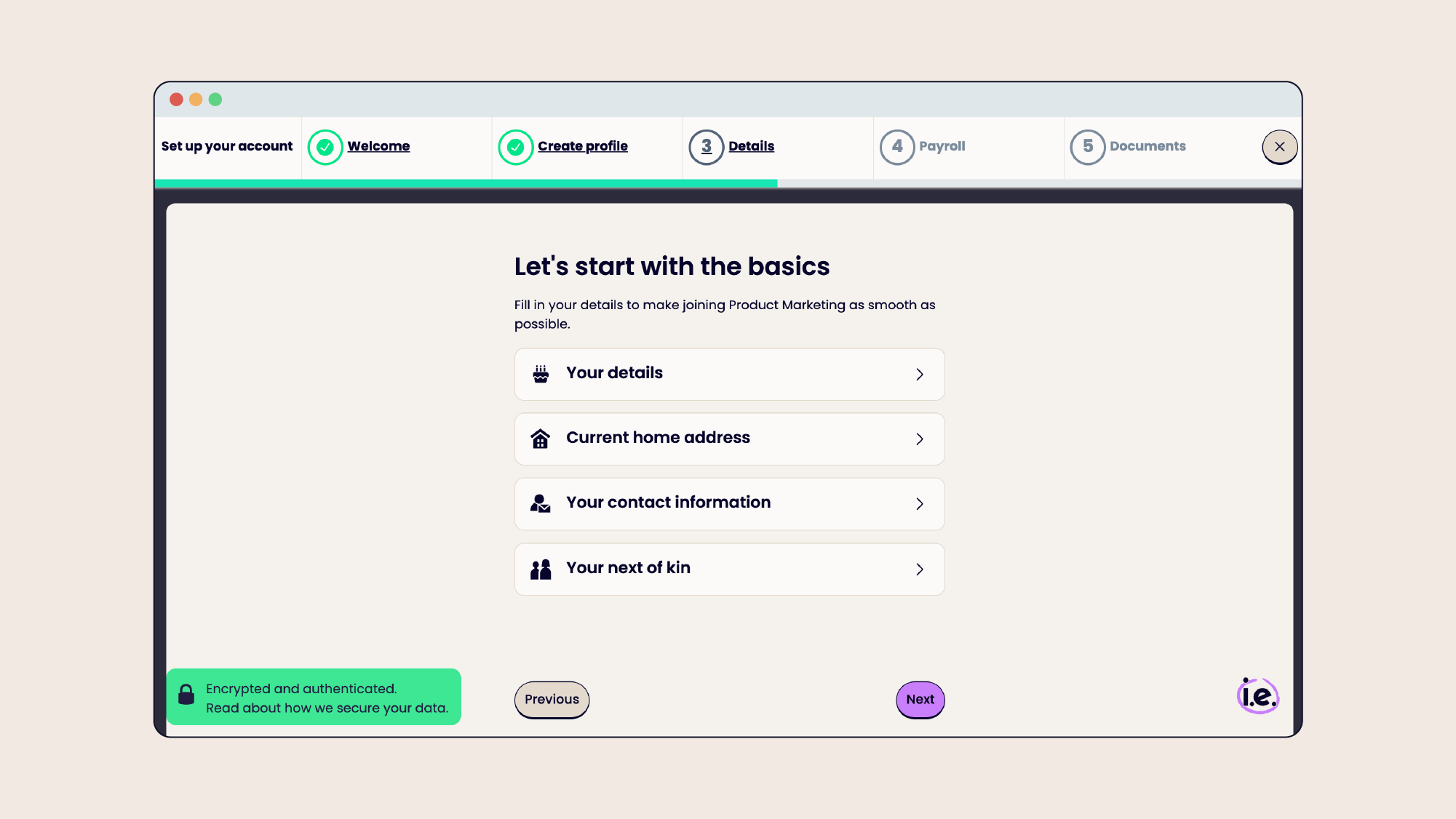
Mistake #2: Not knowing who has access to what
You might be great at getting the most value out of the tools you use, but sometimes they’re just not fit for it — and that can introduce security concerns. When you’re handling HR data, you really need a system that allows you to customise who can access what.
The risks:
- Lack of visibility on who is accessing what
- Inability to protect sensitive data
- Easier to share data outside the organisation
- Exposing personal data to everyone in the company
The fix: Assign access based on role and determine who can view or edit sensitive data.
Change an employee’s account role to give them different access to HR data depending on their role and responsibilities, or leave it as the default so they can only see their own data.
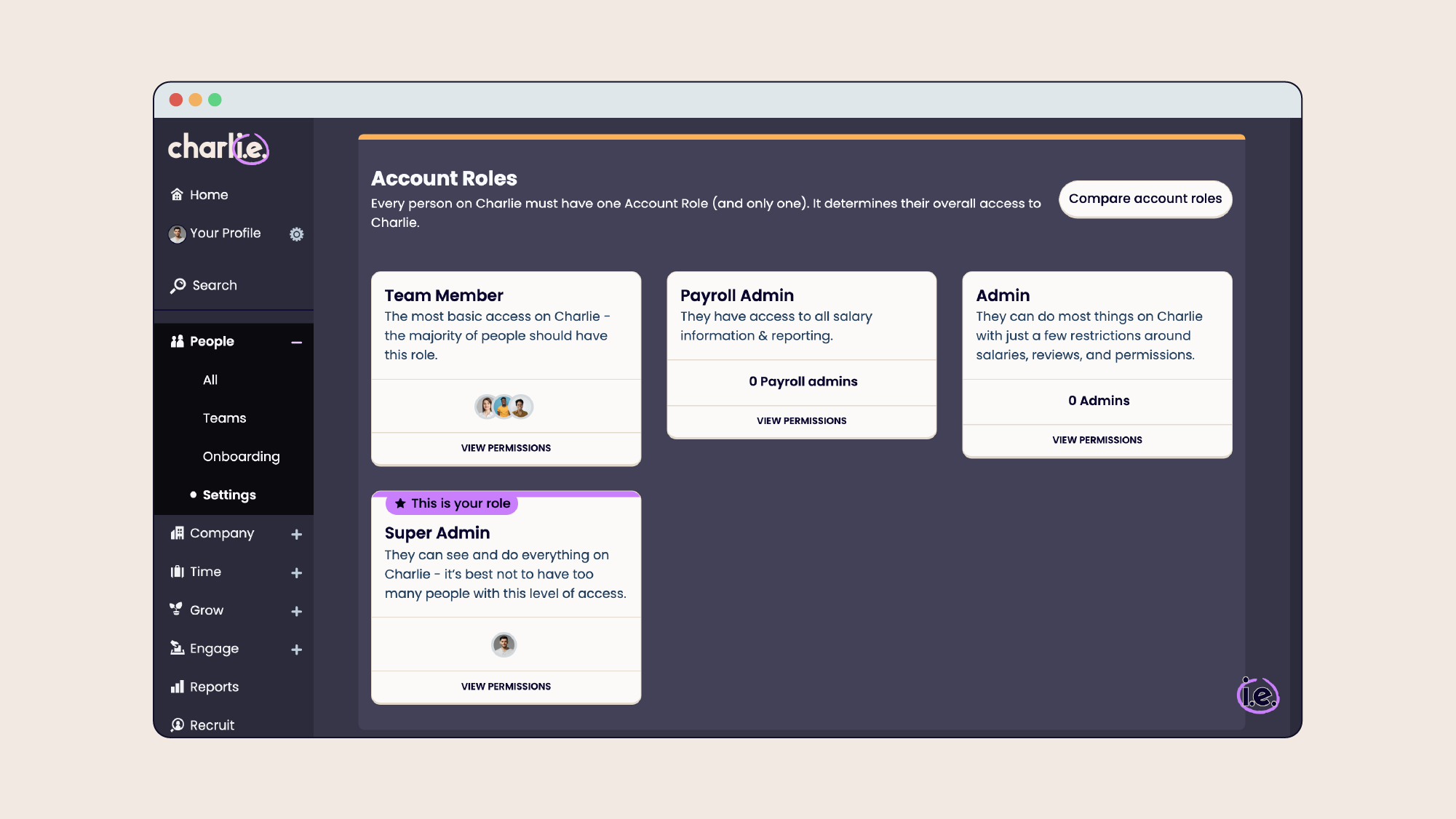
Mistake #3: Missing or outdated documents
It’s easy for files to get lost when they’re stored as Word documents on someone’s PC, or in some long-forgotten folder on Google Drive. But when you need a document urgently, any delay or inability to find it can be costly — especially when it comes to right to work evidence.
The risks:
- Time delay in finding vital information
- Difficulty evidencing your standpoint in disputes
- Wrong information being used in decision-making
- Impact on payroll or benefits administration
- Files or deliveries sent to the wrong person
- Legal repercussions and financial penalties
- Harm to trust and reputation
The fix: Automate document requests and store docs securely within employee profiles.
Request, collect, and save essential documents like contracts, visas, job descriptions, and references to an employee’s profile. Find all the information you need in one secure location, so it’s there when you need it. You can also retain information about leavers in line with legal requirements by viewing archived people.
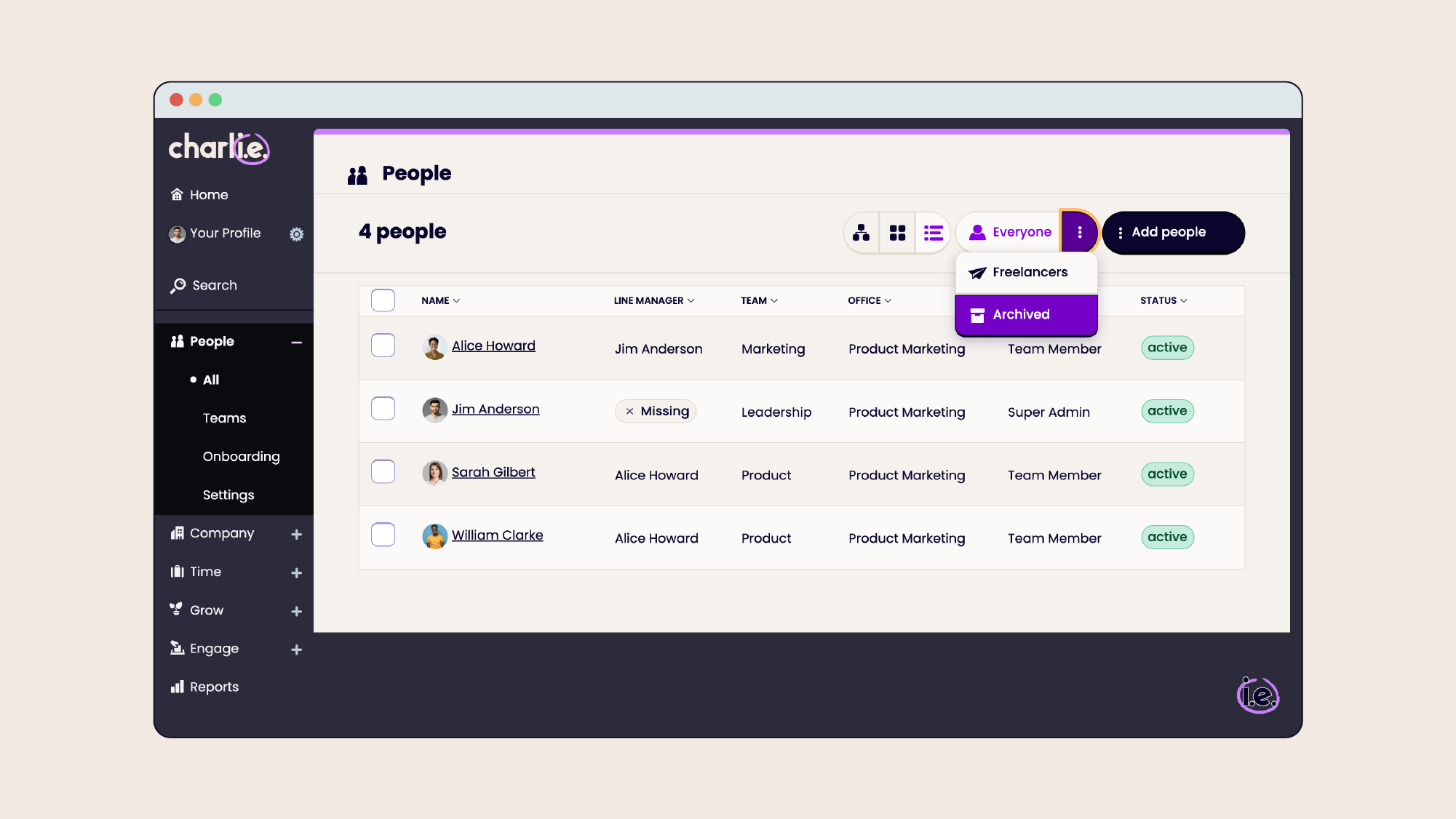
Mistake #4: No data retention or deletion process
When your HR data is stored in a collection of spreadsheets, there’s bound to be information there that you no longer need. Keeping data beyond the time required is a GDPR red flag.
The risks:
- Data is stored beyond necessary limits
- Harder to comply with “right to erasure” requests
- Unclear when to keep or delete data
- No knowledge of who else has a copy of that data somewhere
The fix: Use software that makes it easy to export or delete data.
Charlie allows you to store all your data in one place, so it’s easier than ever to handle any requests around personal data retention. You can also export or delete data in one click, allowing you to comply with UK laws, and Charlie itself is GDPR compliant.
Don’t have a data protection policy yet? Our HR advice service can help you create one.
Mistake #5: Time-consuming manual processes
Checking different spreadsheets and tools to find the information you need is hugely time-consuming. Doing everything manually might have made sense at the start, but it’s now a major roadblock.
The risks:
- Frustration can lead to user error
- People make mistakes looking for a “quick fix”
- Spending too long on one task could lead to mistakes
- Documents aren’t signed off correctly
- Teams adopt their own processes or use unapproved tools
- Process steps get missed leading to delays or errors
The fix: Automate document flows, onboarding, and approvals with Charlie.
Simplify the experience by moving all your employee data, documents, and processes to Charlie. Team members no longer need to go searching for information or finding their own less-than-ideal solutions to problems — instead they can find what they need and take action right away.
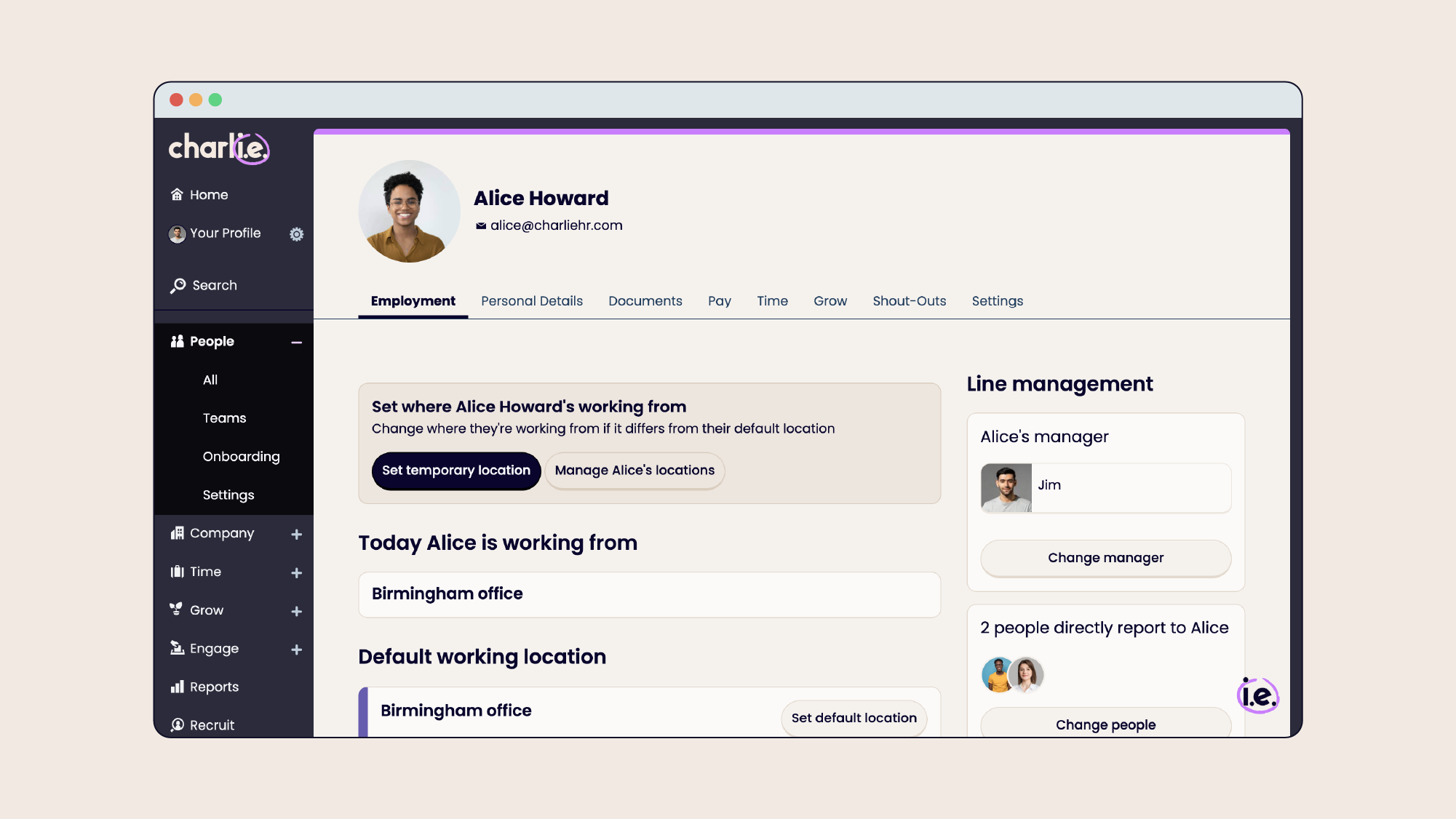
Mistake #6: Not seeing HR data as a business priority
Founders typically focus on growth, finance, or even customer data — but employee data is just as high priority. Just one data breach can erode trust and cause lasting damage, and it’s hard to grow when you can’t attract or retain the best talent.
The risks:
- Employee data is shared internally or externally
- Data is used in a malicious way
- Harm to reputation and trust
- Difficulty being able to retain employees
- Legal risks and financial damage
The fix: Benefit from enterprise-grade HR security, without the complexity.
Charlie is secure by design, and both Cyber Essentials and ISO 27001:2013 certified. The platform is designed with UK businesses in mind, so you won’t need to hire an IT team or do any extra work to comply with legislation (like you would with a tool designed for the USA).
Safeguarding your business doesn’t have to be costly
Most small business owners aren’t experts on compliance and risk, but you don’t need to be. With Charlie, secure HR data management is built in as standard, so you can get started on the right track from day one. No extra cost or admin, just peace of mind that you’re doing the right thing.
Book a demo with our team today to discover how Charlie can change the way you manage HR data for the better.
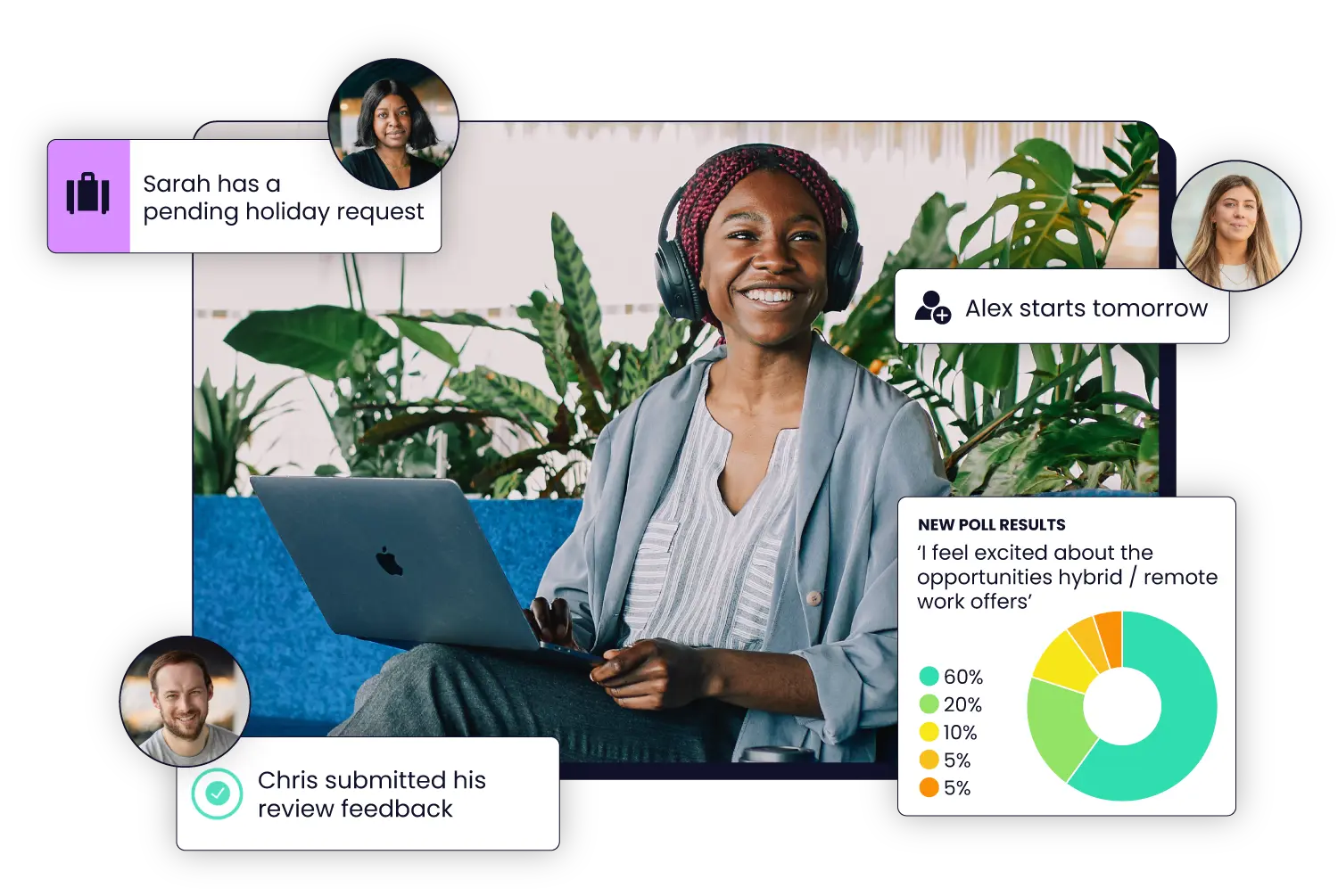
Jenny is a Senior Product Manager at CharlieHR. She has years of experience with product planning and development, and user research too – she put together this guide by collecting data and information on competitors so we could improve our product and tailor it to small business owners.













